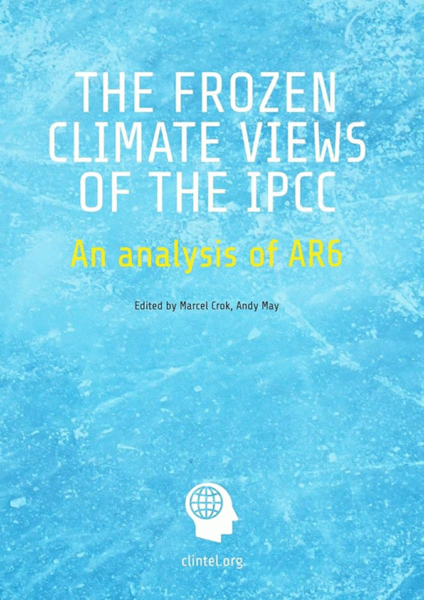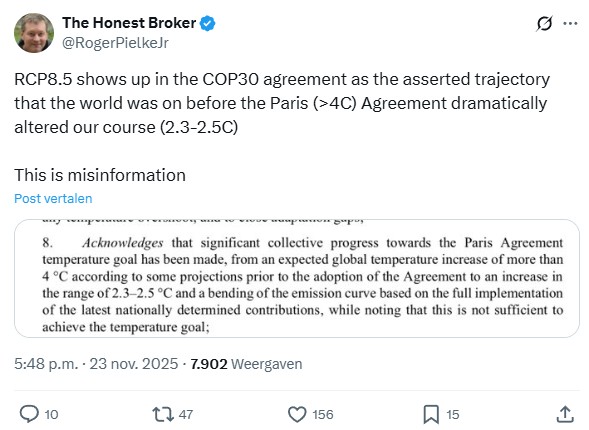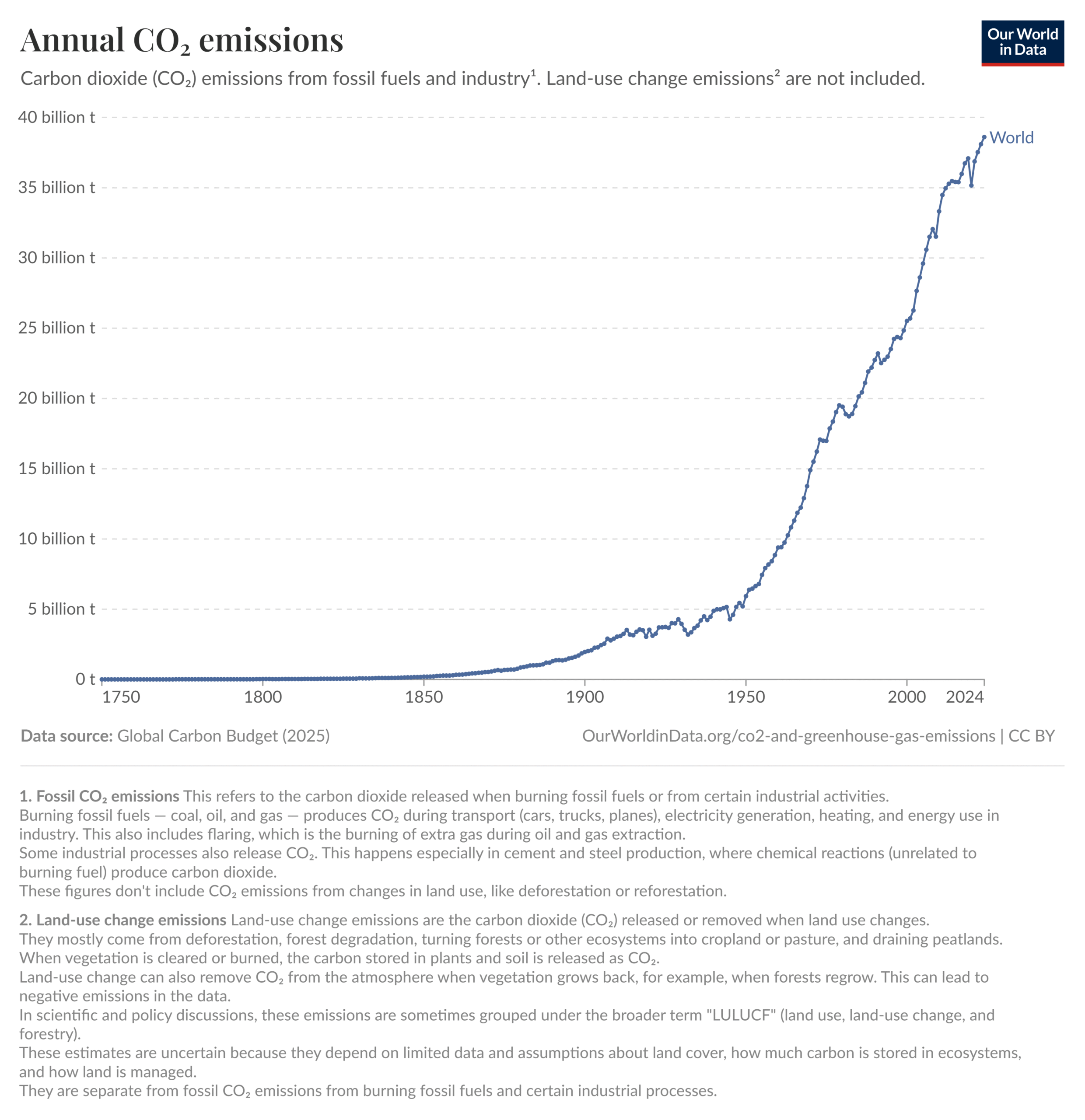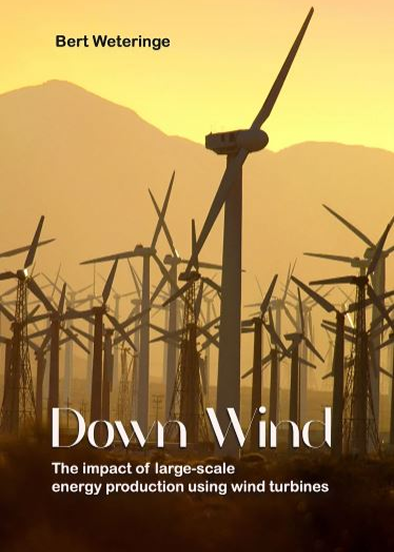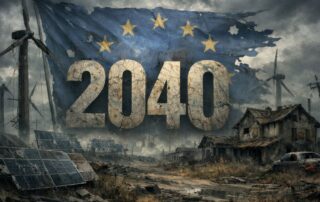COP30 Is Lying To Justify Its Existence
COP30 is building its case on climate misinformation that rewrites the past to claim a victory it never earned.
The COP30 agreement claims the world was previously on track for more than 4C of warming until the Paris Agreement heroically “bent” that trajectory down to 2.3–2.5C:
However, “this is misinformation,” says Roger Pielke Jr., Professor of Environmental Studies at the University of Colorado Boulder. It is a fiction built on the carcass of RCP8.5 — the extreme scenario that scientists quietly abandoned years ago because it required impossible coal use, implausible demographics and an economic collapse that never happened.
COP30 is resurrecting an unrealistic, disowned scenario in order to claim that Paris saved the world. The problem is the data. Real-world emissions show no curve bending, no slowdown and no “Paris effect”.
Paris didn’t change emissions, but it did unlock a permanent justification for climate taxation, energy rationing and the dismantling of cheap, reliable power — the foundation of economic prosperity.
COP30 needs a victory to justify its existence. So it has rewritten history: invent a 4C trajectory, pretend Paris knocked it down, and congratulate itself for saving humanity.
The world was never heading for RCP8.5. Paris didn’t change emissions.
Lies.
more news
“Carbon” Capture Utilization & Storage (CCUS), Separating Fact from Fiction
Even if the world could effectively capture and permanently remove 1 billion tonnes of CO2 annually, the impact on temperature would be barely measurable. And the economic and ecological costs are enormous. Lars Schernikau lists the sobering facts.
My Twenty Years of Watching the Thermometer—and the Narrative
As Watts Up With That? approaches its twentieth year, Anthony Watts reflects on nearly two decades of observing thermometers and climate discourse.
Think tank IREF: ‘Against All Rationality, the EU Persists in its Net-Zero Delusion’
The European Commission has approved a new step towards its 2050 ‘net-zero’ objective, targeting a 90% reduction in net greenhouse gas emissions relative to 1990 levels by 2040. But a recent report by the French think tank IREF (Institut de Recherches Économiques et Fiscales) delivers a sobering reality check.
